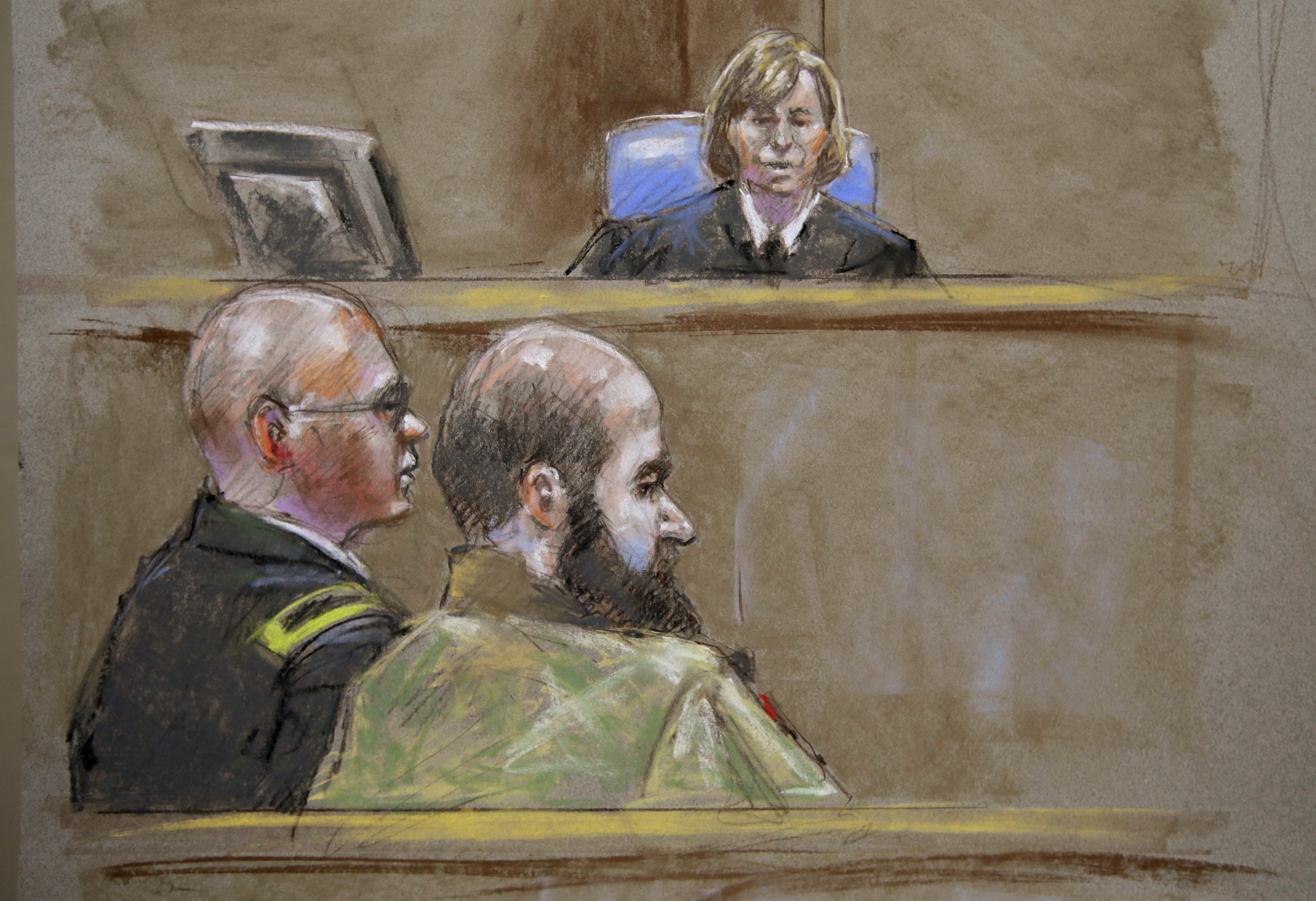A top military court delivered a unanimous decision to uphold the death penalty conviction of ex-Army Maj. Nidal Hasan, who killed 13 people and wounded dozens of others at then-Fort Hood, Texas.
On Nov. 5, 2009, Hasan walked into a readiness processing center and opened fire with a semi-automatic handgun. Thirteen people, including a pregnant soldier, died in the barrage. At his court-martial, Hasan admitted to the shooting, and he was sentenced to death. The U.S. Court of Appeals for the Armed Forces rejected Hasan’s motion to reverse his death sentence after not finding enough merits to his arguments to grant his motion.
“After carefully considering his raised issues and the record, we conclude that Appellant is not entitled to any relief. We therefore affirm the judgment of the lower court,” the court’s opinion read. The court then went on to reject each of his arguments.
Attorneys for Hasan could not be reached for comment.
But the U.S. Court of Appeals for the Armed Forces’ decision does not finalize a pending execution, and Hasan’s case is far from over. Ten years have passed since Hasan pleaded guilty at his court martial in 2013 to the killings. But Eugene Fidell, a visiting lecturer at Yale Law School, said it takes time for a capital case to make its way through the courts due to the “meticulous” nature of the U.S. legal system, even the military justice system.
“In a capital case, you leave no stone unturned,” he said. “I think it’s hard because this was an unanimous decision, so you don’t have the benefit of a dissenting opinion, which would obviously be helpful. It’s the kind of thing you hope for if you have a serious case.”
Fidell said Hasan still has a number of legal options to get his death penalty conviction overturned. If Hasan believes the judges made a mistake or overlooked an issue, he can ask for a reconsideration. Those, he said, are rarely granted. Hasan could then appeal to the Supreme Court if that is rejected.
The case also presents an issue for President Joe Biden, who campaigned as an anti-death penalty candidate. Unlike a civilian court’s ruling, the president must “personally, affirmatively” sign off on a military execution.
Hasan is one of four former service members on military death row at Fort Leavenworth, Kansas. President George W. Bush signed off on the execution of ex-soldier Ronald Gray, but an execution of the serial rapist and murderer is unlikely in the near future due to the case becoming a legal roller coaster. Others who previously sat on military death row had their death sentences reduced by President Barack Obama during his final days in office.
The U.S. government has not executed a member of the armed forces since 1961, when Army Pvt. John Bennett was executed for rape and murder, according to the Death Penalty Information Center. In 1983, the U.S. Court of Appeals for the Armed Forces ruled in U.S. v Matthews that military death penalty sentences were unconstitutional. Then-President Ronald Reagan reinstated the practice after outlining detailed standards for military death penalty sentences.
Jonathan Lehrfeld contributed reporting to this article.
Zamone “Z” Perez is a reporter at Military Times. He previously worked at Foreign Policy and Ufahamu Africa. He is a graduate of Northwestern University, where he researched international ethics and atrocity prevention in his thesis. He can be found on Twitter @zamoneperez.





